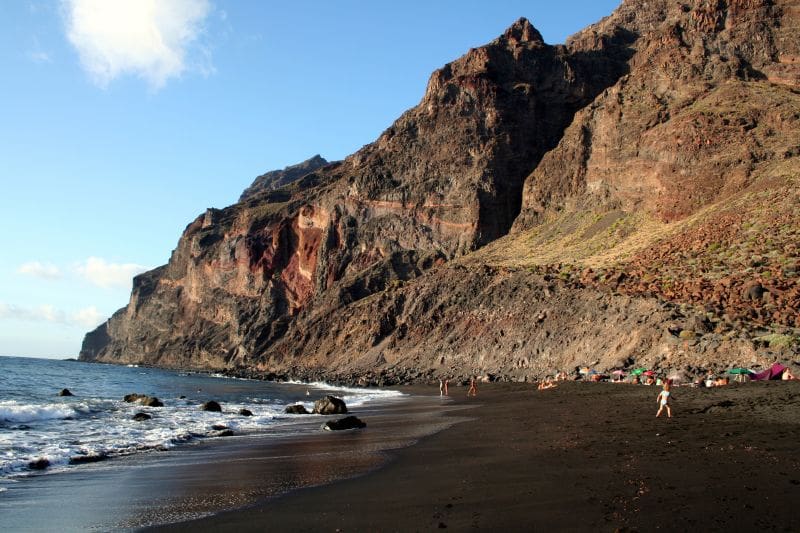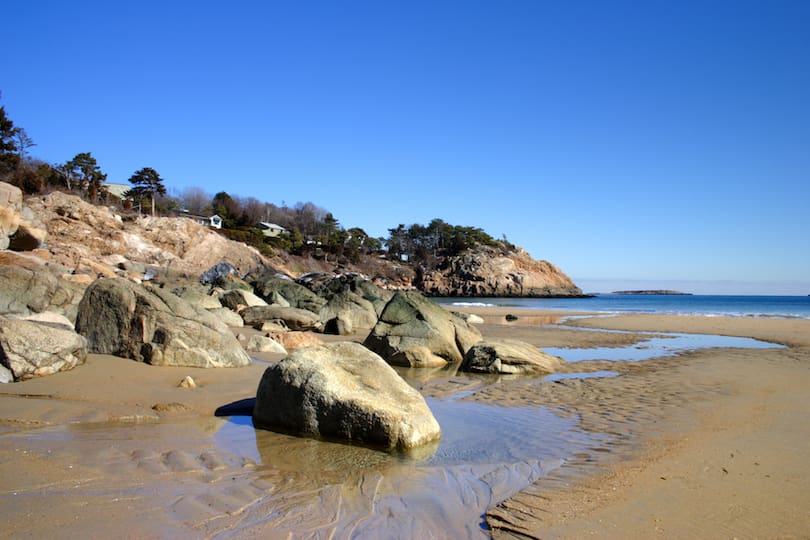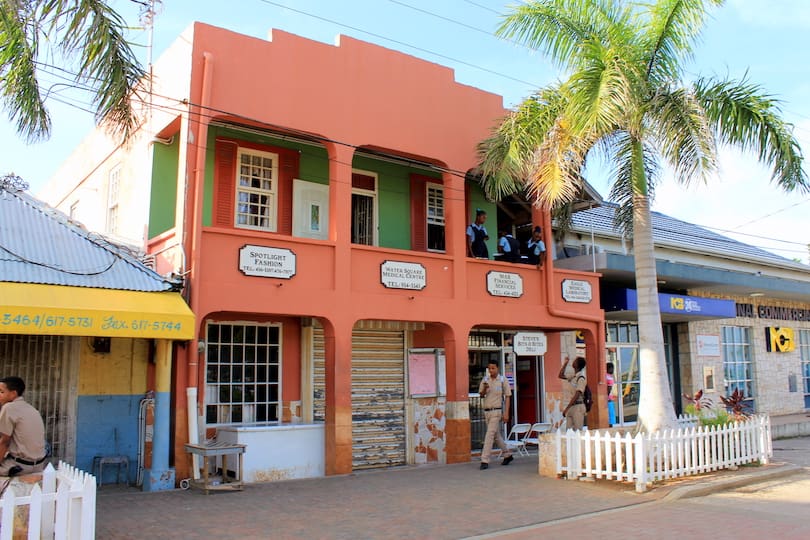Greece is a dream destination for travelers seeking a perfect blend of history, culture, and natural beauty. With its azure waters, white-washed villages, and ancient ruins, it’s no wonder that island hopping in Greece has become one of the most sought-after travel experiences (How to Spend 2 Weeks Island Hopping in Greece). If you’re planning a two-week adventure through this Mediterranean paradise, we’ve got you covered. This guide will walk you through everything you need to know to create an unforgettable journey, from choosing the right islands to packing tips and local insights.
Why Choose Greece for Island Hopping?
Greece boasts over 6,000 islands , each offering something unique. From bustling hubs like Mykonos to serene escapes like Folegandros, there’s an island for every type of traveler. Whether you’re looking for vibrant nightlife, secluded beaches, or rich historical sites, Greece delivers. The country’s well-connected ferry system makes it easy to explore multiple destinations within two weeks, ensuring your trip is both diverse and memorable.
The Magic of Greek Islands
Greek islands are more than just postcard-perfect landscapes. They’re steeped in mythology, history, and traditions that make them truly enchanting. Imagine sipping ouzo while watching the sunset in Santorini or exploring ancient ruins on Crete. Each island tells its own story, making your journey not just a vacation but an immersive experience.
A Tapestry of Cultures and Histories
The Greek islands have been influenced by various civilizations over millennia—from the Minoans and Mycenaeans to the Romans, Byzantines, Venetians, and Ottomans. This rich tapestry of influences is reflected in the architecture, cuisine, and customs of each island. For instance, Corfu carries strong Italian and French influences due to its Venetian past, while Rhodes showcases medieval grandeur with its Knights’ Quarter.
Natural Beauty Beyond Compare
From the dramatic cliffs of Santorini to the lush greenery of Kefalonia, Greece’s islands offer unparalleled natural beauty. Many islands feature unique geological formations, such as volcanic landscapes in Milos and towering mountains in Crete. These natural wonders provide endless opportunities for outdoor activities like hiking, snorkeling, and sailing.
Planning Your Itinerary: A Two-Week Guide
To make the most of your two weeks, careful planning is essential. Here’s how you can structure your trip to cover some of Greece’s most iconic islands without feeling rushed.
Day 1-3: Athens – The Gateway to Greece
Before setting sail, spend a few days exploring Athens , Greece’s vibrant capital. This city is a treasure trove of history, home to landmarks like the Acropolis , Parthenon , and Ancient Agora . Wander through the charming streets of Plaka, indulge in authentic Greek cuisine, and soak up the lively atmosphere.
Exploring Ancient Wonders
Start your exploration at the Acropolis , where the majestic Parthenon stands as a testament to ancient Greek civilization. Visit the nearby Acropolis Museum to delve deeper into the artifacts unearthed from the site. Don’t miss the Temple of Olympian Zeus , one of the largest temples in the ancient world.
Modern Attractions and Hidden Gems
Beyond its ancient roots, Athens offers modern attractions like the National Archaeological Museum and the trendy neighborhoods of Kolonaki and Exarchia . For a panoramic view of the city, head to Lycabettus Hill or enjoy rooftop dining in Monastiraki.
Travel Tips for Athens
- Start early to avoid crowds at major attractions.
- Use public transport to navigate the city efficiently.
- Don’t miss out on rooftop dining with views of the Acropolis.
Day 4-5: Mykonos – Glamour and Nightlife
Hop on a ferry to Mykonos , known for its cosmopolitan vibe and stunning beaches. Spend your days lounging by the turquoise waters of Paradise Beach or exploring the narrow alleys of Mykonos Town. At night, experience the island’s legendary nightlife, where world-class DJs keep the party going until dawn.
Discovering Mykonos’ Charm
Mykonos Town, also known as Chora, is a labyrinth of whitewashed buildings adorned with colorful doors and bougainvillea. Lose yourself in its winding streets, stopping at boutique shops and cozy cafes. Be sure to visit the iconic Windmills of Kato Mili , which overlook the sea and serve as a symbol of the island.
Beaches and Beyond
Mykonos is renowned for its pristine beaches, catering to all tastes. Super Paradise Beach is ideal for those seeking a lively scene, while Agios Sostis Beach offers tranquility and unspoiled beauty. For a cultural excursion, take a day trip to Delos , a UNESCO World Heritage Site and the mythical birthplace of Apollo and Artemis.
Must-See Spots in Mykonos
- Visit the iconic windmills overlooking the sea.
- Explore Little Venice, a picturesque area filled with cafes and bars.
- Take a day trip to nearby Delos, a UNESCO World Heritage Site.
Day 6-7: Santorini – Romance and Sunsets
No trip to Greece is complete without visiting Santorini , famous for its breathtaking sunsets and volcanic landscapes. Stay in Oia or Fira, where whitewashed buildings cascade down cliffs overlooking the caldera. Relax on unique red and black sand beaches, sample local wines, and enjoy romantic dinners with panoramic views.
Unforgettable Experiences in Santorini
Watching the sunset in Oia is a bucket-list moment for many travelers. As the sun dips below the horizon, the sky transforms into a canvas of fiery hues, casting a golden glow over the caldera. For a more intimate experience, book a private dinner at a cliffside restaurant.
Exploring Santorini’s Rich History
Santorini’s allure extends beyond its natural beauty. Visit Akrotiri , an ancient Minoan Bronze Age settlement preserved under volcanic ash, often referred to as the “Pompeii of the Aegean.” The Museum of Prehistoric Thera houses fascinating artifacts from this era, providing insight into the island’s storied past.
Hidden Gems in Santorini
- Hike from Fira to Oia for stunning coastal vistas.
- Discover Akrotiri, an ancient Minoan Bronze Age settlement.
- Indulge in fresh seafood dishes paired with Assyrtiko wine.
Day 8-9: Paros – Authentic Charm
Head to Paros , a lesser-known gem that offers a mix of traditional charm and modern amenities. Explore the quaint village of Naoussa, stroll along golden beaches, and visit the Panagia Ekatontapiliani church, one of Greece’s oldest religious sites.
Embracing Local Life
Naoussa, with its picturesque harbor and cobblestone streets, exudes old-world charm. Dine at family-run tavernas serving homemade delicacies like grilled octopus and stuffed tomatoes. Visit the Panagia Ekatontapiliani , a Byzantine church believed to have been founded by Saint Helena, mother of Emperor Constantine.
Activities in Paros
- Rent a car to explore hidden coves and rural villages.
- Try windsurfing at Golden Beach, a hotspot for water sports enthusiasts.
- Sample local specialties like octopus and cheese pies.
Day 10-11: Naxos – History and Adventure
As the largest of the Cyclades islands, Naxos is ideal for those who love history and outdoor adventures. Discover ancient temples, medieval castles, and lush valleys. Don’t forget to visit Portara, a massive marble gate that stands as a symbol of the island.
Naxos’ Unique Landmarks
The Portara , located on Palatia Islet, is an imposing gateway that once led to the Temple of Apollo. Though incomplete, it remains a striking monument against the backdrop of the Aegean Sea. Explore the Kastro , a Venetian castle perched atop a hill, offering panoramic views of the town below.
Outdoor Adventures
Nature lovers will find plenty to do in Naxos. Hike through verdant valleys dotted with olive groves and vineyards, or embark on a mountain biking expedition. The island’s rugged terrain provides ample opportunities for exploration and discovery.
Why You’ll Love Naxos
- Cycle through olive groves and vineyards.
- Swim in crystal-clear waters at Agios Prokopios Beach.
- Taste Kitron, a citrus liqueur native to Naxos.
Day 12-13: Crete – Culture and Nature
End your island-hopping adventure in Crete , Greece’s largest island. Known for its diverse landscapes, Crete offers everything from rugged mountains to pristine beaches. Explore the Palace of Knossos, hike Samaria Gorge, and savor Cretan cuisine, renowned for its health benefits.
Diving Into History
The Palace of Knossos , near Heraklion, is a must-visit for history buffs. Often called Europe’s oldest city, Knossos was the center of Minoan civilization. Marvel at the intricate frescoes and labyrinthine corridors that inspired the legend of the Minotaur.
Natural Wonders
Crete’s natural beauty is equally captivating. Trek through Samaria Gorge , one of Europe’s longest gorges, or relax on Elafonissi Beach , famed for its pink sands and turquoise waters. The island’s varied ecosystems support a wide range of flora and fauna, making it a haven for nature enthusiasts.
Top Attractions in Crete
- Wander through Chania’s Venetian harbor.
- Visit Heraklion Archaeological Museum for fascinating artifacts.
- Relax on Elafonissi Beach, famous for its pink sands.
Day 14: Return to Athens
Conclude your trip by returning to Athens. Use this time to reflect on your incredible journey and perhaps pick up souvenirs like olive oil, honey, or handmade ceramics.
Final Reflections
As you bid farewell to Greece, take a moment to appreciate the memories you’ve created. Whether it was dancing under the stars in Mykonos, marveling at the sunset in Santorini, or hiking through Crete’s rugged landscapes, each experience has enriched your understanding of this remarkable country.
Travel Tips for Island Hopping in Greece
Booking Ferries
Ferries are the lifeline of Greek island travel. Book tickets in advance during peak season (June to September) to secure your spot. Websites like Ferryhopper and Direct Ferries make the process seamless.
Understanding Ferry Types
Greek ferries come in various types, including conventional ferries, high-speed catamarans, and hydrofoils. Conventional ferries are slower but cheaper, while high-speed options reduce travel time significantly but come at a higher cost. Choose based on your budget and schedule.
Packing Essentials
- Lightweight clothing suitable for warm weather.
- Comfortable walking shoes for exploring cobblestone streets.
- Sunscreen, sunglasses, and a wide-brimmed hat for sun protection.
Additional Packing Tips
Consider bringing a reusable water bottle to stay hydrated, especially during summer months when temperatures soar. A small backpack is handy for day trips, allowing you to carry essentials like snacks, sunscreen, and a camera.
Budgeting Wisely
While Greece offers options for all budgets, costs can add up quickly. Opt for local tavernas instead of touristy restaurants, and consider staying in guesthouses or Airbnb accommodations for a more authentic experience.
Saving Money on Accommodations
Look for accommodations slightly outside the main tourist areas, where prices tend to be lower. Hostels and guesthouses often provide excellent value, with friendly hosts eager to share insider tips about their island.
Other Tourist Attractions Worth Exploring
If time permits, consider adding these destinations to your itinerary:
- Rhodes : Famous for its medieval Old Town and Lindos Acropolis.
- Milos : Home to Sarakiniko Beach, often called “Moon Beach.”
- Corfu : A lush island with Venetian architecture and stunning gardens.
Rhodes: A Step Back in Time
Rhodes’ Old Town is a UNESCO World Heritage Site, brimming with medieval charm. Walk along the Street of the Knights, visit the Grand Master’s Palace, and climb to the top of the walls for sweeping views of the city.
Milos: Off the Beaten Path
Known for its otherworldly landscapes, Milos is a paradise for photographers and adventurers alike. Sarakiniko Beach , with its lunar-like terrain, is a standout attraction. Explore hidden caves and secluded bays by renting a boat or joining a guided tour.
Corfu: A Verdant Escape
Corfu’s lush vegetation sets it apart from other Greek islands. Stroll through the Spianada Square , the largest square in Greece, and visit the Achilleion Palace , built in honor of Achilles. The island’s west coast boasts dramatic cliffs and pristine beaches.
Conclusion
Island hopping in Greece is a journey like no other. With its unparalleled beauty, rich history, and warm hospitality, Greece promises an experience that stays with you long after you’ve returned home. By following our carefully crafted itinerary, you’ll be able to explore the best of what this Mediterranean paradise has to offer. So pack your bags, embrace the spirit of adventure, and get ready to create memories that last a lifetime.
FAQs About Island Hopping in Greece
- What is the best time to visit Greece for island hopping?
- Late spring (May-June) and early autumn (September-October) offer pleasant weather and fewer crowds.
- Do I need a visa to travel to Greece?
- Travelers from EU countries and many others do not require a visa for short stays.
- How do ferries work in Greece?
- Ferries connect most islands, with schedules varying by season. High-speed ferries are faster but pricier.
- Is it safe to rent a scooter on the islands?
- Yes, but ensure you have proper insurance and always wear a helmet.
- Can I use credit cards in Greece?
- Most places accept cards, but carrying cash is advisable for smaller establishments.
- Are Greek islands family-friendly?
- Absolutely! Many islands cater to families with kid-friendly beaches and activities.
- What should I eat in Greece?
- Try moussaka, souvlaki, tzatziki, and fresh seafood.
- How much does island hopping cost?
- Costs vary depending on accommodation, transportation, and activities, but budget around €100-€150 per day.
- Do Greeks speak English?
- Many locals, especially in tourist areas, speak basic English.
- What’s the best way to book accommodations?
- Use platforms like Booking.com or Airbnb, and book early during peak seasons.















